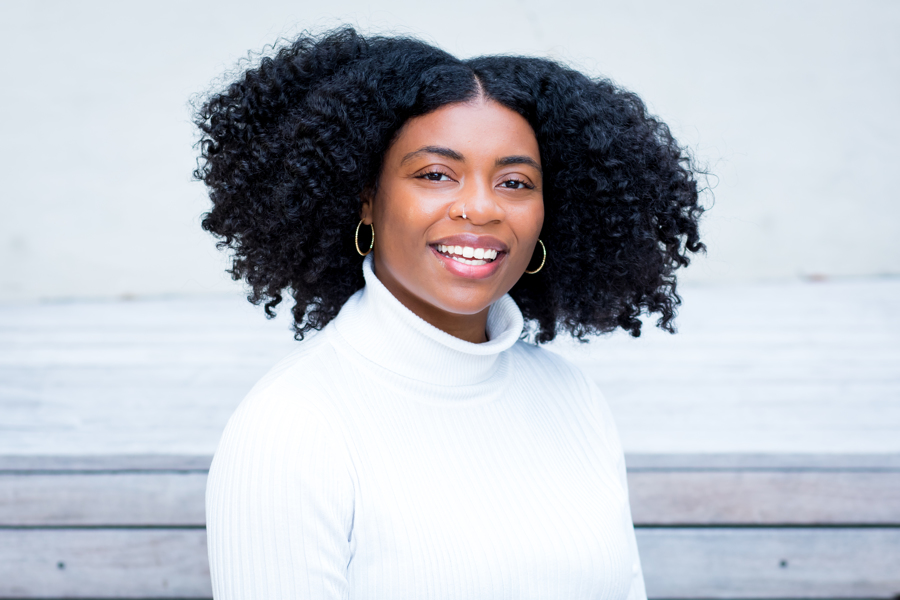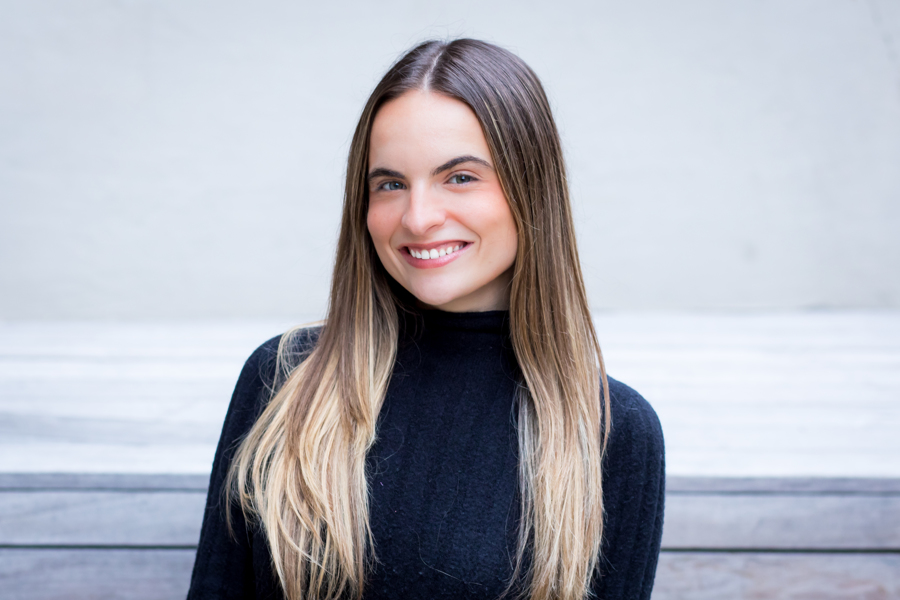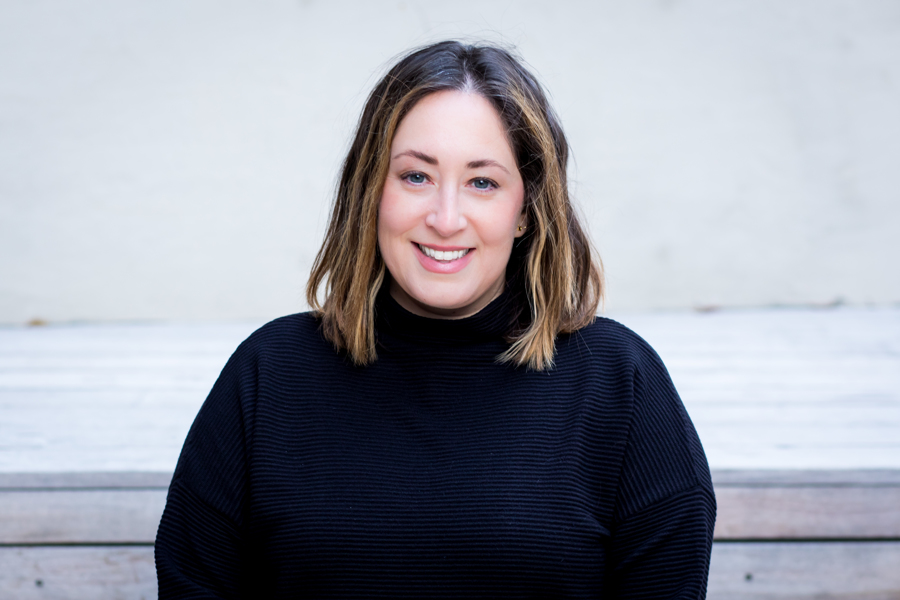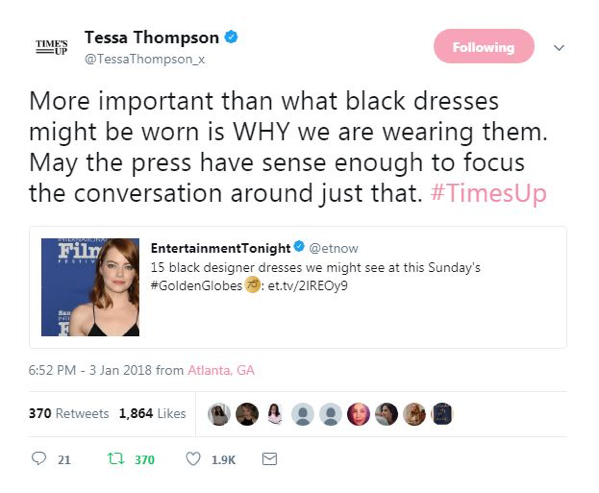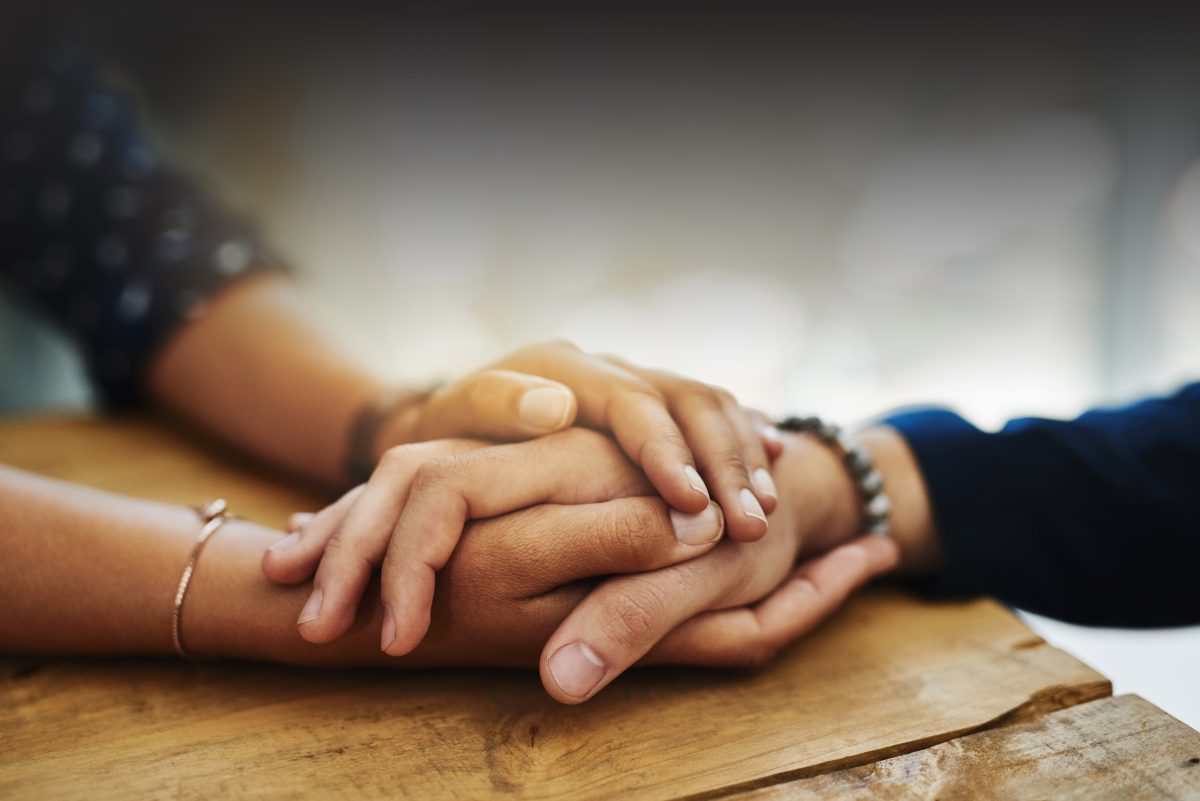Abortion rights, women of color, and LGBTQIA+ people are under attack. Pledge to join us in fighting for gender justice.
We Ask Survivors to Share Their Stories with Us. Now, We’re Sharing Our Stories with You.
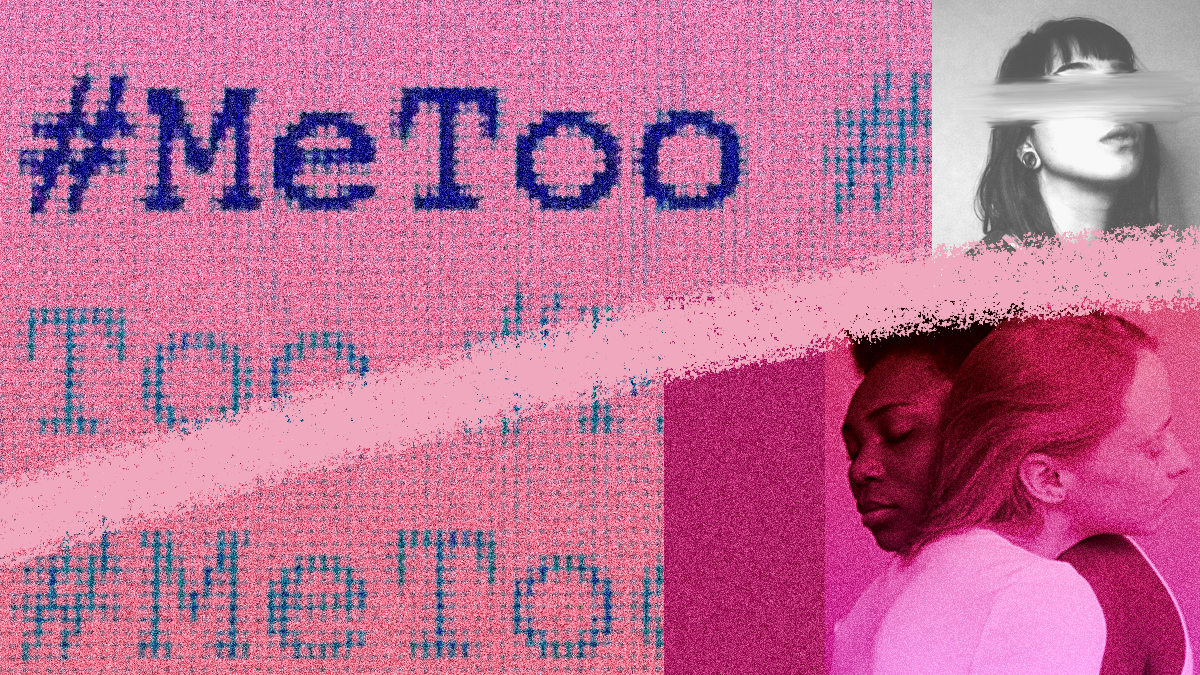
Every case at the TIME’S UP Legal Defense Fund starts the same way:
A survivor sharing their story with us.
And every time, we remain in awe of the courage that kind of vulnerability takes.
This Sexual Assault Awareness Month, our team wanted to open up and share something with you, too, answering the question:
What has been a defining moment or experience that has shaped your desire to do this work (or be in the gender justice) space?
This Is What Women in My Family Were Called to Do
By Sky
I come from a long line of fighters and survivors. Saddled into poverty, with long memories of both state and physical violence, many of the women in my family sought new opportunities in a foreign country, in hopes of forgetting all about the pain that their bodies still carried. These women became nurses, social workers, teachers, and held roles in law enforcement. When I’ve asked them what the reason was for taking on roles in the helping profession, their answers would vaguely be something along the lines of, “well, it was just available.” I knew the true answer was that they wanted to make a change in the lives of people that looked like them. These beautiful women with battle scars that ran deep, never spoke openly about the wars they encountered but moved throughout life as nurturers and healers, reclaiming their lives and the impact they wanted to have on their communities.
It’s not surprising that I gravitated towards gender justice issues and ended up pursuing a master’s degree in social work. While I recognized that I picked a difficult profession, one that I saw my grandmother also commit to, I was still not prepared for the grief. Time and time again, I would come across many survivors of sexual violence that grappled with shame and internal struggle while seeking support and resources. I recognized that many of these feelings came from previously encountering spaces where they could not openly share their stories, where they were held responsible for what happened to them and where fear often consumed them. My goal in these moments was to make sure that I could provide as many coping mechanisms and mental health resources as I possibly could, but I knew that therapeutic services would not be the only solution to uplifting and healing survivors in their journeys. Access to legal and financial resources is absolutely essential, too.
Though I was always active in the survivor justice field, when I think about a defining moment, I still remember the day I saw a peer post the #MeToo hashtag. When I clicked on the link, a flood of stories, words, and images came across my screen. I was consumed by these posts for days because it was the first time I had ever seen so much vulnerability and discussion of sexual violence on a public platform. For so much of my personal and professional life, I had encountered discussions of violence as ones that should live between four walls, in the privacy of a home, or in academic settings, where theory was always at the forefront of the conversation. People I knew and people I knew I would never meet had felt moved to share their most intimate experiences with the world. At this moment we experienced a cultural shift in how we view survivors, and how their stories are told in the public sphere.
Years after I came across the hashtag and had the opportunity to continue working directly with survivors, I was thrilled to land a position at the TIME’S UP Legal Defense Fund, which has been innovative in supporting survivors across workplace, education, and health care settings. Recognizing the gap in access to free initial consultations from attorneys, the need for financial assistance around legal cases, and media and storytelling assistance, the program is uniquely positioned to provide resources that fill a gap in accessing legal help.
While there is no guarantee that everyone who comes to us will find what they are searching for, it is astonishing to see how much the Fund has accomplished in a short amount of time. I recognize that this work is an uphill battle, and that there are so many more resources, advocacy, and policy efforts that are required to change how we view, protect, and denounce violence that occurs against women and gender expansive people. I think about the women in my family before me, who served as the foundation of my desire to do this work. I think about those who often have not had a platform, access to legal services, nor a person on the other end of the line to validate their experiences. My hope is that as a collective, many of us can continue the efforts of supporting and advocating for survivors.
How Do You Respond to Someone Else’s Pain?
By Kate
What was a viable response to a young girl who struggled to find the words to say she was sexually assaulted?
At the age of seventeen, I wasn’t sure.
Rosa, a young girl who had recently migrated unaccompanied from Guatemala, was only a few years younger than me. Hearing her story—as part of a larger interview project documenting the experiences of local Hispanic migrants—transformed my understanding of issues of sexual violence within my own community, showing me the emotional wounds that sexual violence can and does leave behind.
Less than a month later, the global reckoning of #MeToo began. Again, I was struck by the prevalence of sexual violence within my community. With each new day, thousands of survivors said #MeToo, including people that I know and love. I was in awe of their vulnerability. I was also hopeful and eager—hopeful of what may come of this rise in public consciousness, and eager to help shift our culture and systems to support survivors, their healing, and their visions for justice.
Throughout my college years, I invested time to learn about issues of gender-based violence. I dedicated my senior thesis to understanding how changes in migration policy and routes differentially affect migrants by gender. Through my research, I learned that experiences of sexual violence are among the most common motivating factors for migration of women globally and that an estimated 60 to 80% of women migrants from Central America experience sexual assault during their journey. This experience, and others, emboldened me in my desire to work in the gender-based violence space.
Having been a part of the gender justice movement for years, I was thrilled to join the TIME’S UP Legal Defense Fund team at the National Women’s Law Center, a small-but-mighty group of advocates to support survivors of gender-based harassment and violence in workplace, education, and health care settings. With so much important work to be done in this space, our team focuses on widening access to justice for survivors by connecting them with attorneys and providing funding for legal cases. Importantly, as navigating the legal system is often re-traumatizing for survivors, our team also employs a trauma-informed, survivor-centered approach to our work.
I am in awe of the survivors who find the courage to share their stories with us—but often, and just like Rosa, they still struggle to find the words.
What is a viable response to that unspoken, or spoken, pain?
Over the last six years, I’ve learned that really, it’s not about responding. It’s about listening, and understanding, and being there for someone—without any judgement.
This Sexual Assault Awareness Month, I am proud to be a part of a diverse, strong, and fiercely committed ecosystem of advocates working to support survivors—and above all else, make them feel heard.
A Refuge for Rage
By Danie
In October 2017, I was a college freshman absorbed in the bubble of a new life of textbooks, shared dorm rooms, and 8 a.m. lectures. Until one morning I was scarfing down a quick breakfast in the dining hall and mindlessly scrolling through my phone when something extraordinary caught my eye. Several huge media outlets had broken the Weinstein sexual abuse story, and my social media became filled with #MeToo hashtags and brutally honest disclosures of sexual harassment and assault from friends and strangers alike. Classmates identified their abusers online, professors altered their curriculum so that we could discuss the impact of this new movement, and even my own friends and I were able to be more honest with each other than we ever had been before. It was clearer than it had ever been to me that there was power in claiming your narrative and no longer accepting that this is a reality we must live with.
The cascading effects of the MeToo movement were the catalyst that drew me to gender justice work—where I quickly learned that, beyond the internet’s hashtag, most if not all survivors were still shamed and pushed into silence. When I finished undergrad in 2021, I began working in crisis support for domestic violence survivors. I watched firsthand as survivors disclosed their abuse and were immediately invalidated and discounted—their pain dubbed a non-credible source. Police, prosecutors, and judges were insensitive and not trauma-informed in their interactions with survivors. Survivors were referred to as hysterical, overreactive, and trying to exploit the system. And on a broader scale, there was a shift of anti-MeToo backlash that was once again playing out in the very visible realm of Hollywood—and creating an even more challenging environment for everyday survivors.
For example, the week that the courts ruled in favor of Johnny Depp’s defamation case against Amber Heard, I had multiple survivors decide to drop their own protective orders as they did not want to be examined and retraumatized in court just to lose in the end. In less than five years it felt like people were tired of hearing about sexual violence and they wanted to move on, but the cycle of sexual violence continues. In those same five years I felt myself becoming angrier and angrier. I wanted somewhere to put this restless energy, somewhere that stands by survivors and is willing to scream from the rooftops that this is not the death of the MeToo era.
And that’s how I ended up at the TIME’S UP Legal Defense Fund.
Because at the National Women’s Law Center, we refuse to let this movement fade away. We stand by survivors who have been dismissed by their supervisors, by their doctors, by their HR managers, by their principals, and by our society as a whole. We see them and we elevate their voices. We won’t let survivors become a forgotten hashtag. They are human beings, and they deserve more than that. That value is at the core of what we do here. I would not have known that this is where I would end up when I first read those shocking articles in my dining hall as a freshman, but today I am immensely proud to be a part of this team.
Survivors Deserve Representation in Court
By Lizzy
For the first five years of my legal career, when asked the only question people at parties in D.C. seem to care about—“What do you do?”—my mouthful of an answer—“I’m a legal services attorney representing domestic violence survivors in child custody and protection order cases”—left even the most seasoned D.C.-ers perplexed.
“So, you’re a public defender?” they would respond.
And I would explain that, no, I practiced in civil, not criminal, court. While I did provide free representation, my clients had no right to a lawyer. In fact, because representation is so expensive and pro bono attorneys are in such limited supply, most people seeking custody of their children or a protection order against their abusers have no legal counsel, sometimes even when their opposing parties do. For some party goers, hearing about my job marked the first time they had thought about this gap in accessing justice, an issue that most low-paid Americans have been painfully aware of for decades. In fact, according to a 2021 survey, low-paid Americans “do not get any or enough legal help for 92% of their substantial civil legal problems.”
I saw this reality play out in my work every day. While I would sit in the courtroom with my client waiting for our case to be called, I watched as unrepresented survivors were cross examined by their abusers and victim blamed by judges, knowing what a tremendous difference a lawyer could have made in their cases. Despite seeing the tangible impact legal representation had on my clients’ lives, I could not help but feel discouraged by how significantly the demand for legal representation outpaced the supply. For that reason, in 2018, I was heartened to learn about the creation of the Legal Network for Gender Equity and the TIME’S UP Legal Defense Fund at the National Women’s Law Center. These initiatives were started to narrow the access to justice gap for survivors of workplace harassment and assault—another area of law where survivors have no right to a lawyer—by connecting them with attorneys and funding their legal cases. Five years later, I am thrilled to now be a part of this work every day, helping to make justice more accessible for survivors of gender-based harassment and violence.

